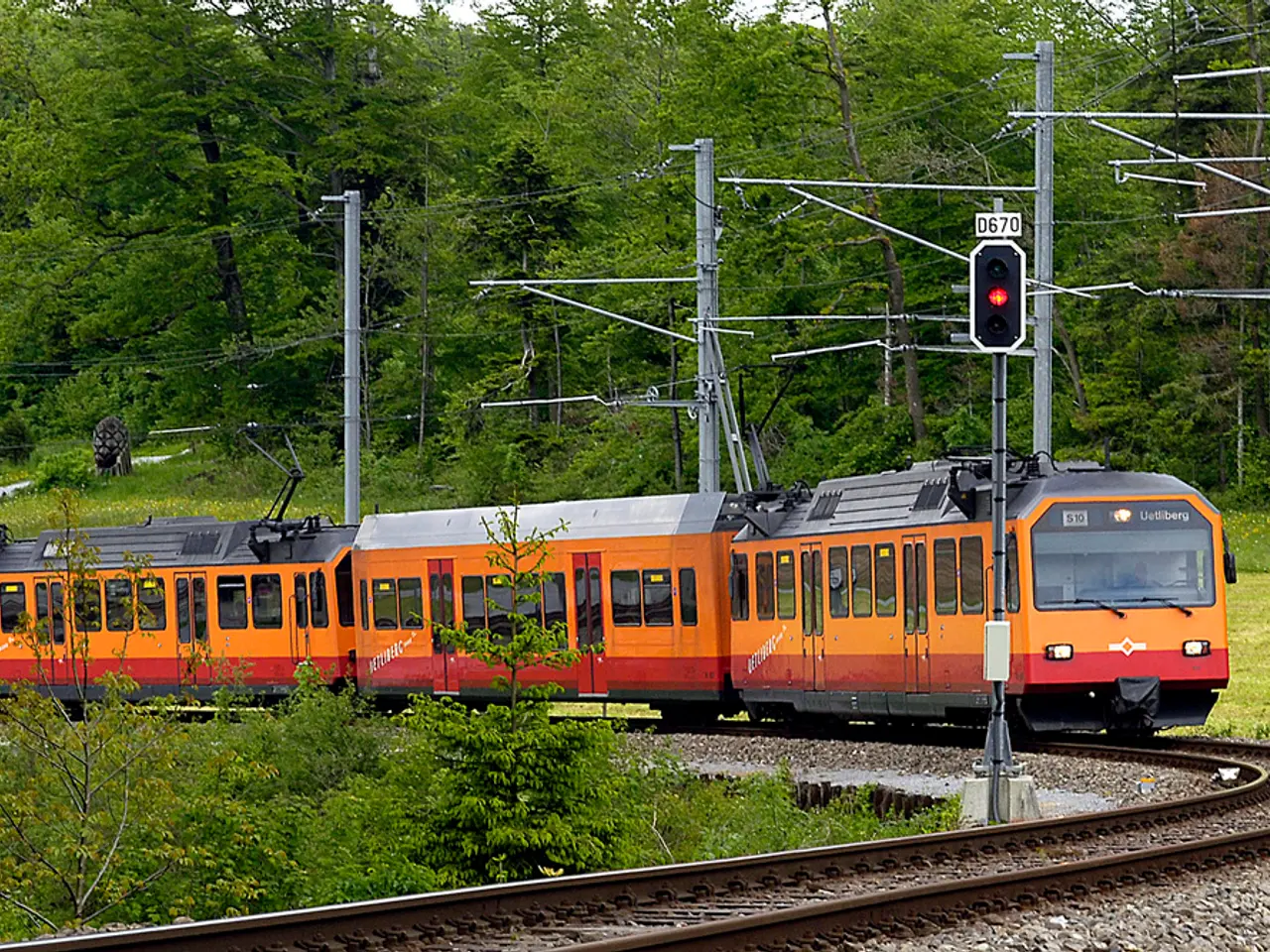Electric Matatus piloted on Kenyan intercity routes by BasiGo debut
In a significant stride towards sustainable transport, Kenyan electric mobility startup BasiGo has launched a pilot programme for electric matatus (public transport minivans) on inter-city routes. The initiative, which extends electric mobility beyond Nairobi's urban centres to longer-distance transport corridors, has seen initial deployments of 16- and 19-seater electric minibuses operating on routes such as Nyahururu, Nyeri, Nakuru, and Thika [1][3][5].
Partnering with forward-thinking SACCOs like 4NTE and Manchester, BasiGo aims to demonstrate that electric mobility is practical for intercity and intercounty transport. This pilot reflects a deliberate effort to expand electric public transport beyond Nairobi, electrifying an iconic part of Kenya’s transport history while supporting climate commitments and creating local jobs through plans for local assembly [1][3][5].
One of the key challenges in implementing electric vehicles in Kenya is the current thin charging infrastructure outside major cities. However, the Kenyan government is actively addressing this issue. National policies now require new buildings to provide EV charging outlets, and Kenya Power has committed to installing over 100 public EV charging stations along major highways and urban centers [2]. This infrastructure development is crucial for inter-city routes where charging points are needed to maintain service reliability.
Operator skepticism is another hurdle that BasiGo is addressing. To build confidence, BasiGo offers pay-as-you-drive financing models, reducing upfront costs and financial risks for operators. Additionally, BasiGo provides full after-sales support, including servicing and maintenance, which helps mitigate concerns about new technology adoption [1][2].
Despite these efforts, questions remain about how electric vehicles will hold up on rougher rural roads and during peak demand. To overcome these barriers, recommendations include targeted tax reliefs and fiscal incentives under Kenya’s “Buy Kenya Build Kenya” policy to boost local assembly competitiveness and stimulate industry growth [1].
Moses Nderitu, BasiGo Managing Director, expressed optimism about the programme's progress, stating, "We are extending electric mobility beyond Nairobi's urban centres to longer-distance transport corridors." If the pilot programme succeeds, BasiGo plans to scale up quickly, targeting more than 1,000 electric vans across Kenya in the next few years [1].
Each of the new vans has a range of 300 kilometres on a single charge and takes 90 minutes to recharge. The pilot programme involves two transport Savings and Credit Cooperative Organisations (Saccos): 4NTE and Manchester Travellers Coach. One van each will ply the Nyahururu-Nyeri, Nyahururu-Nakuru, and Thika-Nairobi routes as part of the trial [1].
Wilfred Kimotho, chairman of 4NTE Sacco, called the partnership a "step into the future" and stated that the sector can't afford to be left behind as the world transitions to cleaner energy [4].
[1] https://www.businessdailyafrica.com/mobile/article/2022-08-04-basigo-electric-vehicles-pilot-programme-launched-in-kenya/6179206 [2] https://www.energynewsafrica.com/kenya/kenya-to-install-100-ev-charging-stations-along-major-highways/ [3] https://www.recharge.co.uk/analysis/kenya-electric-vehicle-startup-basigo-takes-on-the-matatu-challenge/20220803/ [4] https://www.businessdailyafrica.com/mobile/article/2022-08-03-basigo-electric-vehicles-pilot-programme-to-begin-in-kenya/6179136 [5] https://www.thestar.co.ke/business/2022-08-03-basigo-launches-electric-matatu-trial-on-kenya-roads/
(Note: The article does not contain any advertisements related to the content.)
(Note: The unrelated fact about the Moonshot event in Lagos was omitted from the article to maintain focus on the main topic.)
- The collaboration between BasiGo and SACCOs like 4NTE and Manchester marks an attempt to demonstrate that electric mobility is feasible in intercity and intercounty transport, aligning with the aims of environmental-science and climate commitments.
- The Kenyan government's commitment to infrastructure development, such as installing EV charging stations along major highways and urban centers, is essential for maintaining service reliability on inter-city routes like Nyahururu, Nyeri, Nakuru, and Thika.
- To address operator skepticism, BasiGo provides pay-as-you-drive financing models and full after-sales support, thereby reducing financial risks and concerns about new technology adoption, respectively.




